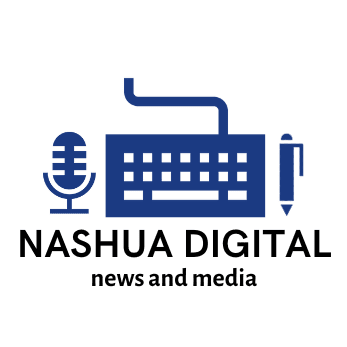
Black Money Workshop At Keene State College

By Benjamin Kabanda-Nashua Digital
Darrien Waugh, Coordinator for Student Diversity, Belonging, and Equity at Keene State College, held a workshop called “Black Money.”
During the workshop, Waugh discussed how the people of marginalized communities can build wealth.
Before a crowd of about ten people on a Valentine’s Day night, Waugh had a presentation showcasing strategies to handle credit cards, stocks, payments, interests, and loans.
“I run a financial program called Think Gen Wealth,” said Waugh.
Thinking Gen Wealth educates marginalized groups on financial advice.
Waugh stated that educators out there did not provide much value for the marginalized community, so he took matters into his own hands to be a co-creator of the program.
Waugh emphasizes how important it is for someone to have good credit.
“With the credit, you can make hard assets,” stated Waugh.
He also went into a discussion about compound interest. Compound interest is gaining interest on the money you’ve saved.
Waugh told the audience that it’s a good idea to practice compound interest in your early twenties to be more wealthy when you are older.
“I don’t want to be working until I’m 70,” cautioned Waugh.
That is one reason why Waugh states people should start investing now so they can retire as soon as possible.
People will have money accrued from compound interest to fall back on after retirement.
Waugh believes in the 50%-30%-20% rule. The tactic is to spend 50% of your money on bills and necessities. 30% of your money should go towards your wants, and 20% of your money should go towards your savings
“I think 30 and the 20 should be switched,” said Waugh.
He advised that it’s better in the longer term to invest 20% of your money into your wants and 30% into your savings.
There was a spotlight shined on inflation.
“Personally, I don’t keep more than $200 in my checking account,” said Waugh.
During the workshop, there was skepticism against major banks such as TD Bank, Wells Fargo, and Bank Of America.
“These major banks don’t care about us,” exclaimed Waugh.
He then explained that major banks are paying dividends to their shareholders; they do not care about their members.
“I recommend banking with credit unions,” said Waugh.
As explained during the workshop, credit unions pay their members dividends. However, it was advised that building relationships with major banks would be a good idea if you want to start a business.
The topic of brokerage accounts was brought into discussion. With a brokerage account, you can invest in ETFs, bonds, stocks, etc.
When it comes to a brokerage account, you have to invest the money you incorporate into the account.
Waugh also discussed a 401K, which is a retirement saving plan that lets you put away part of your paychecks before taxes deduct them.
“A 401K is offered to you by the job,” said Waugh. This discussion got the audience thinking about how jobs offer 401K to their employers.
One financial service Waugh recommended was Fidelity Investments. This company helps customers roll over an old 401K account into a rollover IRA.
Another topic that was brought into discussion was the different types of IRA people can invest in.
“Traditional IRA is used when you are really wealthy,” explained Waugh. With a Traditional IRA, you can provide money that was taxed or hasn’t been taxed yet.
Roth IRA was also brought up in discussion at the workshop. “A Roth IRA is investing money that is already taxed,” explained Waugh.
“Once you can take that money, you can retire on it,” said Waugh.
During the last part of the workshop, Waugh gave advice about how the audience should utilize credit cards.
Waugh told the audience about how imperative it is to pay your credit card on time.
“Pay down your balance at least three to four days before the statement closing date,” suggested Waugh.
He also suggested that new credit card users start paying off their balance of 1% to 3%.
The main message of this workshop was to get the audience to think critically about how they handle their own money and not just take his word for it.
This is a link to our earlier coverage of Darrien Waugh
Benjamin Kabanda is an up-and-coming student journalist who attends Franklin Pierce University.
He can be reached at: [email protected]
Connect With Nashua Digital
Reach out to Nashua Digital and join the conversation. Share your stories, thoughts, and inquiries with us. Together, let's strengthen our community through the power of local news.
Contact
Location
Bedford, New Hampshire